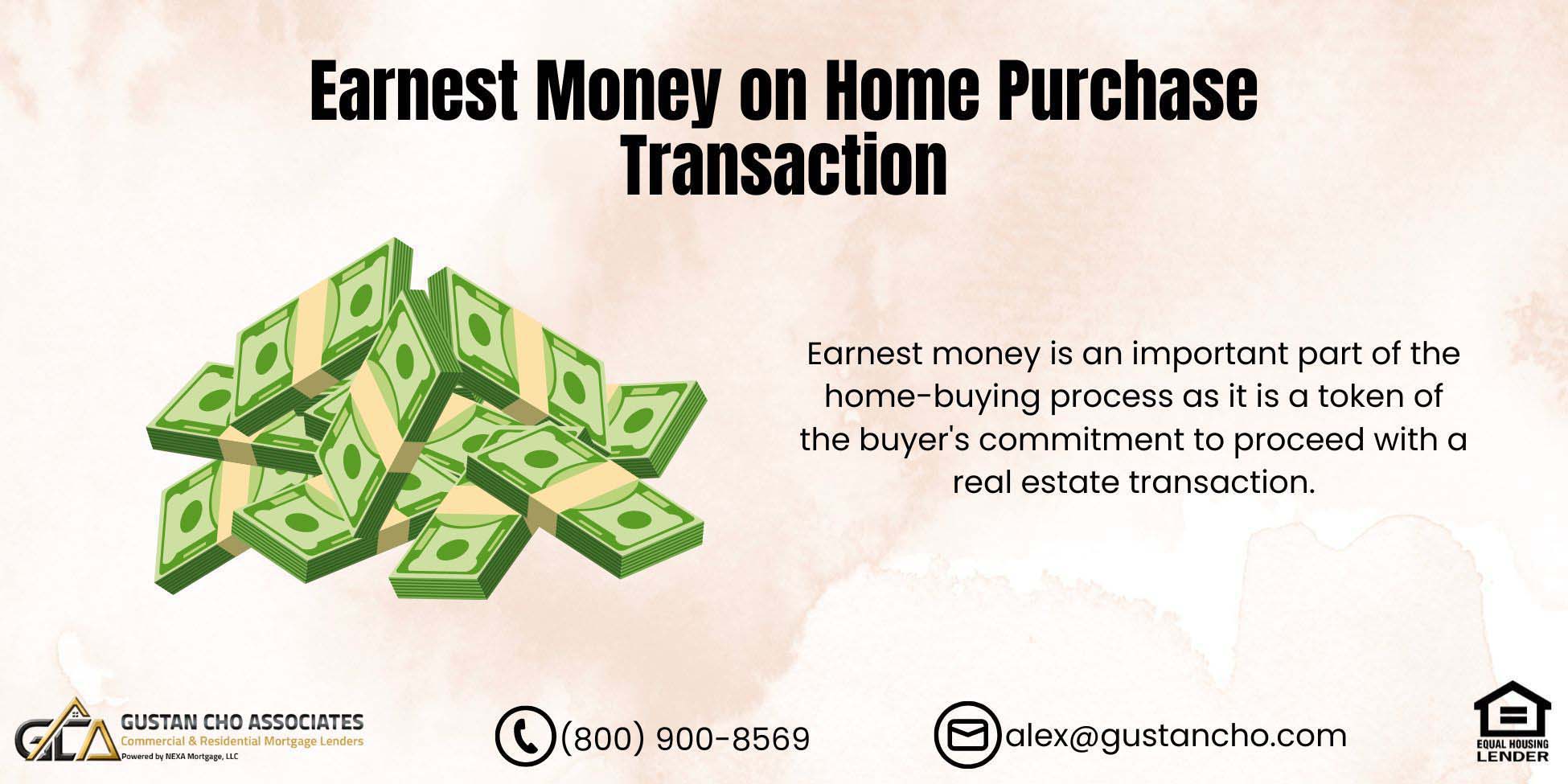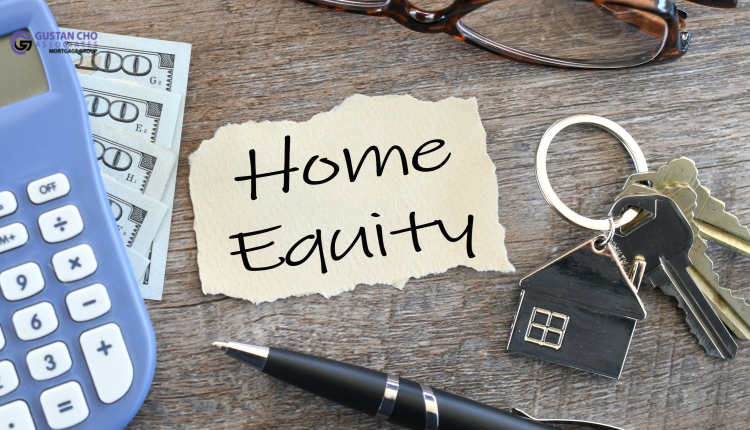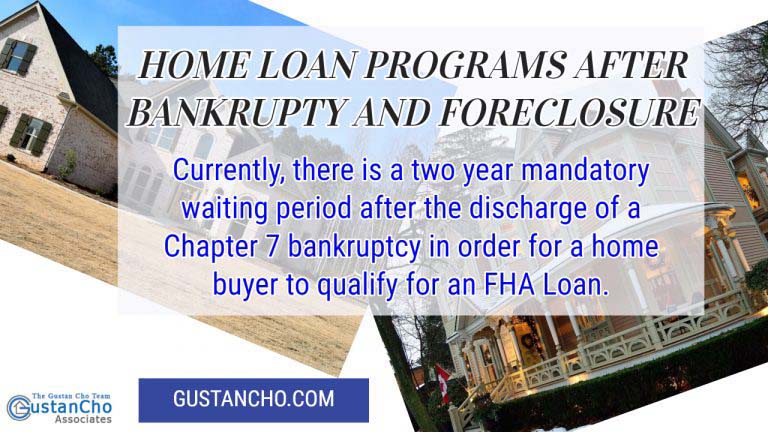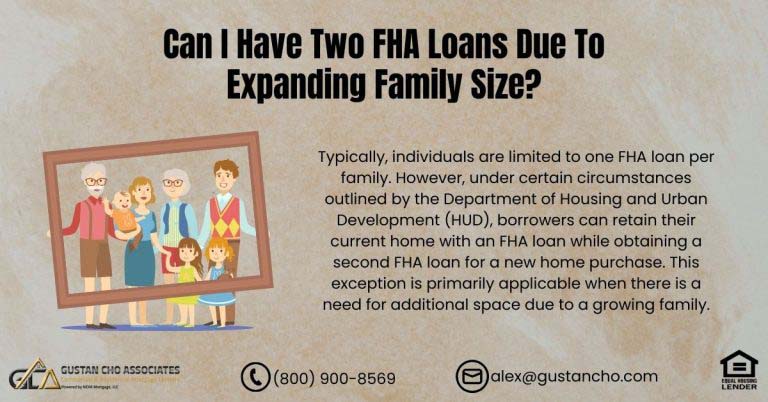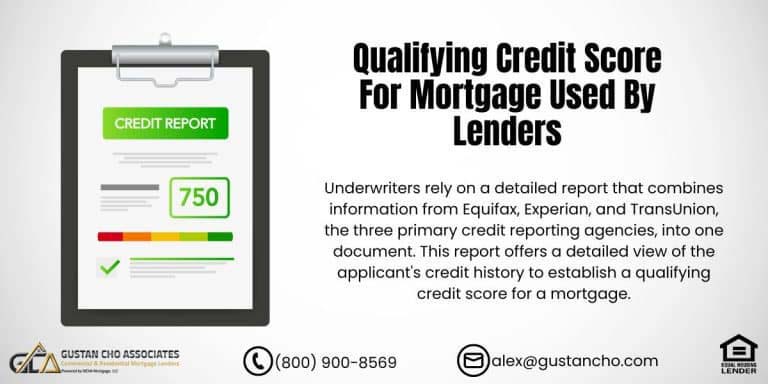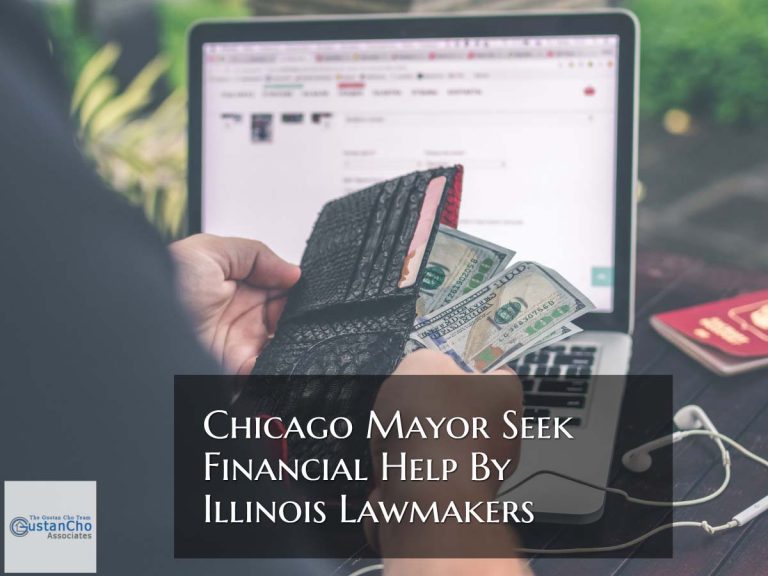This guide covers what is earnest money on home purchase. Earnest money is a deposit a homebuyer submits with the real estate purchase offer. This deposit gives the home seller the assurance that the home buyer is serious about the purchase of the home. In this guide covers how the deposit of a home purchase transaction works. Homebuyers who are interested in making an offer on a particular home normally write a check. Submits it with the real estate purchase contract to the seller. There is no minimum amount of deposit a home buyer needs to submit. Sometimes a buyer writes an earnest money check for $500. While other times check can be $10,000.
Earnest funds are refundable during the home buying process contingency period. The higher the deposit, the more likely it is that the seller will accept the offer.
Large earnest money shows strength and the seriousness of the purchase offer. Earnest money is used towards the down payment of the home purchase. Gets applied from the cash to close the borrower needs to bring at closing. The earnest money is deducted from the down payment required by lenders. In the following paragraphs, we will cover earnest money on home purchase transactions.
What is Earnest Money?
Earnest money is an important part of the home-buying process as it is a token of the buyer’s commitment to proceed with a real estate transaction. Here’s an overview of how earnest money works in a home purchase transaction. Earnest money is a deposit from a home buyer to a seller, representing a buyer’s good faith to buy a home. The deposit secures the buyer’s offer and shows that the buyer is serious about the purchase.
How Does Earnest Money Work?
When you offer a home, you typically include an earnest money deposit. This amount can vary, but it is usually 1% to 3% of the purchase price, depending on the market conditions and local customs. The earnest money is held in an escrow account by a third party, such as a real estate brokerage, legal firm, or title company until the transaction closes. The main purpose of earnest money is to compensate the seller if the buyer backs out of the deal without a valid reason, as defined under the contract terms.
Ready to Purchase Your Dream Home? Let Us Help You Make It Happen!
Contact us today to get pre-approved and take the first step toward owning your dream home.Applying for Earnest Money
If the sale goes through, earnest money is generally applied toward the buyer’s down payment or closing costs. If the deal falls through due to a contingency outlined in the contract (such as failing to get a mortgage approval or significant issues found during the home inspection), the earnest money is typically returned to the buyer. If the buyer backs out of the deal for reasons not covered by the contract’s contingencies, the seller may keep the earnest money as damages.
Contractual Clauses of Earnest Money on Home Purchase
The conditions under which earnest money can be refunded or forfeited should be clearly defined in the purchase agreement. Buyers should understand these conditions before signing.
Buyers can protect their earnest money by ensuring the contract has contingencies that allow for the refund of earnest money under specific circumstances, such as the inability to secure financing or the discovery of serious property defects.
The amount of earnest money you decide to deposit can sometimes influence a seller’s decision in a competitive market. A higher deposit might make your offer more attractive. Understanding how earnest money functions within home-buying can help you navigate your purchase more effectively and safeguard your interests. Always consult your real estate agent or a legal professional to tailor the purchase agreement to protect your deposit.
Earnest Money on Home Purchase: Contingencies on Purchase Contract
When a homebuyer enters into a real estate purchase contract, the earnest money shows that the home buyer is serious about the home purchase. When a homebuyer enters into a real estate purchase contract, there will be many contingencies. Contingencies listed on a real estate purchase contract is a clause that allows the buyers of the home to back out of the deal. If the homebuyer back out of the real estate purchase contract they will get a full refund on their earnest money deposit. There is a deadline date for the sellers to return the earnest money deposit in the event the home purchase contract gets canceled by the homebuyers due to contingencies.
Earnest Money on Home Purchase: Typical Contingencies
Here are examples of contingencies on a real estate purchase transaction:
- Earnest money needs to be refundable by a certain date
- Home inspection
- Mortgage contingency
- Appraisal contingency
- Closing terms contingency
- Other contingencies will be listed on the real estate purchase contract
- For each of these contingencies, there is a time period
- A home buyer has a certain amount of time to do their due diligence on the subject home
Can cancel the real estate purchase contract during this time period with no questions asked.
Ready to Buy a Home? Let’s Make Your Home Purchase Transaction Easy and Stress-Free!
Contact us today to get pre-approved and begin your home purchase journey.Who Holds The Earnest Money on Home Purchase
The earnest money is held in an escrow account of a realtor, attorney, or title company. For example, if a homebuyer enters into a real estate purchase contract and has a ten-day home inspection contingency, the home buyer has ten days of getting the subject property inspected.
If the home inspector finds many defaults with the subject property and the homebuyer decides to cancel the real estate transaction, they may do so and the full earnest money needs to be returned by law.
Both the buyers and sellers can go back to the drawing table and renegotiate the purchase contract. The seller will give a certain amount of time to the home buyer to cancel the home purchase. After a certain date, the earnest money can become non-refundable. For example, there is a mortgage contingency date on a real estate purchase contract for mortgage loan commitment, appraisal, home inspection, and closing. If the mortgage contingency date passes and the home buyer does not ask for an extension, then the earnest money can become non-refundable.
Issues With Earnest Money During Mortgage Process

Borrowers get gift funds from a family member, then a gift letter from the donor will be required as well as 30 days bank statements from the donor. The funds leaving the donor’s account into the recipient’s account.
When homebuyers give the sellers earnest money, they should always give the earnest money via check. Lenders will want to see a copy of the canceled check. Make sure that the funds came from the borrower’s account. The funds in the borrower’s bank account need to be seasoned for at least 60 days. There are many cases where home buyers give cash for their earnest money. Unfortunately, this will create senseless paperwork and the cash earnest money cannot be used towards the down payment on the home purchase.
Qualifying For Mortgage With a Lender With No Overlays
Home Buyers who need to qualify for a mortgage with a national mortgage company licensed in multiple states with no mortgage overlays on government and conventional loans, please contact us Gustan Cho Associates at 800-900-8569 or text for faster response. Or email us at gcho@gustancho.com. We have zero lender overlays on FHA, VA, USDA, and Conventional Loans. Gustan Cho Associates has a national reputation of being a one-stop mortgage lending shop. We are experts on non-QM loans and bank statement mortgage loans for self-employed borrowers.
FAQs About Earnest Money on Home Purchase Transaction
- What is earnest money? As a homebuyer, it is important to show your good faith and serious intent to proceed with the purchase. One way to do this is by making a deposit known as earnest money. This deposit acts as a token of your commitment, an indication that you are dedicated to the real estate transaction.
- How does earnest money work? To buy a home, you need to understand the earnest money deposit. This deposit varies from 1% to 3% of the purchase price. A third party holds it in an escrow account until the transaction is closed. Review and adjust regularly to understand what you can afford monthly.
- Is earnest money refundable? Suppose you encounter any contingencies outlined in the contract, such as being unable to secure a mortgage or discovering significant issues during the home inspection. In that case, your earnest money is typically refundable if the deal falls through. However, suppose the buyer backs out without a valid reason as defined in the contract. In that case, the seller may keep the earnest money.
- What happens to the earnest money if the sale goes through? Once the sale is finalized, the earnest money is commonly used to cover the buyer’s closing costs or down payment.
- What typical contingencies might be included in a purchase contract? Common contingencies include home inspections, mortgage approvals, appraisals, and specific closing terms. These contingencies give the buyer a certain period to address these issues before fully committing to the sale.
- Who holds the earnest money? Earnest money is held in an escrow account managed by a real estate agent, attorney, or title company, which ensures that it is properly handled until the transaction is completed or terminated.
- What should I do if I need to use gift funds as earnest money? It is acceptable to use gift funds to ensure that your earnest money is properly documented. You must provide a gift letter from the donor and verify the funds transfer. This documentation is typically required for gift funds.
- Can earnest money be a check? Yes, homebuyers often submit earnest money via check. This ensures that lenders can track and verify the funds, which is crucial during the mortgage approval process.
- How can I protect my earnest money deposit? When you invest in real estate, it’s crucial to have contingencies in your purchase agreement that permit the return of earnest money. To safeguard your interests, consider seeking the advice of a real estate agent or legal professional to tailor your contract.
- What if I have undocumented funds I want to use for earnest money? Undocumented funds cannot be used for earnest money in the mortgage process. All funds must be verified and traced back to their source to be considered valid for real estate transactions.
For more specific advice related to your circumstances, always consult a professional, such as Gustan Cho Associates, who can provide detailed guidance based on your needs and local market conditions.


